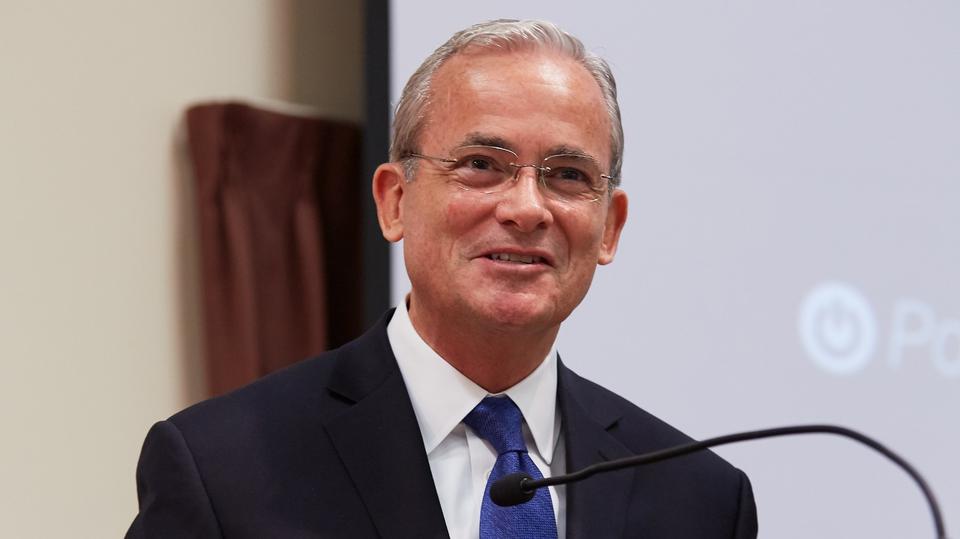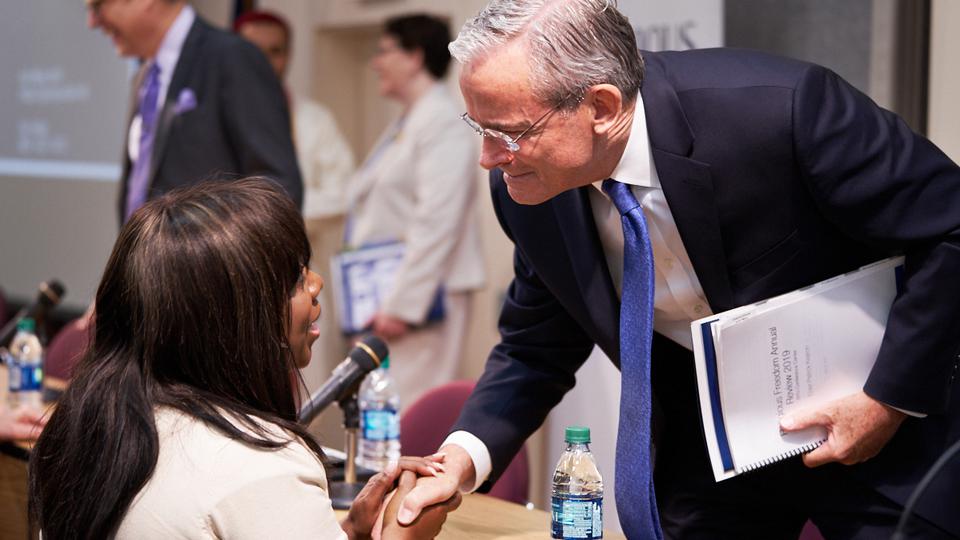Elder Patrick Kearon of the Presidency of the Seventy of The Church of Jesus Christ of Latter-day Saints told attendees of a major conference on religious freedom Wednesday that such freedom cannot survive unless it is understood and valued by rising generations.
The theme of this year’s annual conference at Brigham Young University was “Religious Freedom for a New Generation.”
Elder Kearon noted an inherent tension in the values of many young people—of the desire to make the world a better place while being less inclined to identify with a religion or attend worship services. Because of this, he told the hundreds of religious, opinion and academic leaders gathered at the BYU Conference Center, “there is a need, and a real opportunity, for religious freedom to be framed differently and be more clearly understood.”
Elder Kearon, a native of the United Kingdom, said that reframing is possible only by breaking out of one’s homogeneous social cloister and engaging, dialoguing and interacting with “people of all sorts.” “Unless we participate, we lose our ability to both influence the world and learn from it,” he said. “As British novelist E.M. Forster put it: ‘Only connect! … Live in fragments no longer.’”

Read the transcript of Elder Kearon’s talk, “Of Rights and Responsibilities: The Social Ecosystem of Religious Freedom.”
Elder Kearon encouraged conference attendees to connect religious freedom to the common values espoused by youth and young adults. “Help many more young people see the opportunities the free exercise of religion provides to serve others in need and unite communities in ways that benefit all people.” The rising generations also need to “understand that the expression of religious belief through community service is dependent on religious freedom,” he said.
Perhaps most important, Elder Kearon said, is the sense of personal responsibility each person must feel to change the world.
“Influencing society always seems to be the job of someone else—someone with more power, more money, more time. Perhaps we expect some program or sponsor to take the lead. But when it comes to taking care of people, there is no someone else; there is only us,” he said. “As human beings and the children of divine creation, we all want to live by a moral vision and want to share it with others. In doing this, we enter the realm of both religion and politics. This can be messy and contentious, but we have reason to be optimistic. As Martin Luther King Jr. was so fond of saying, drawing from the abolitionist Theodore Parker, ‘the arc of the moral universe is long, but it bends toward justice.’ We are in that arc, and God expects us to do our part in nudging it toward justice. This is our work.”
The two-day conference’s other keynote speaker was Kristina Arriaga, vice chair of the U.S. Commission on International Religious Freedom. About 80 other notable religious, opinion and academic leaders also participated on panels during the conference. See the full list of presenters.
Read the transcript of Elder Kearon’s talk, “Of Rights and Responsibilities: The Social Ecosystem of Religious Freedom.”
